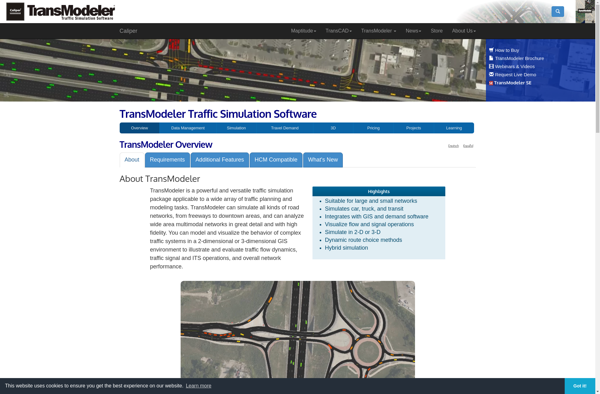TSIS-CORSIM
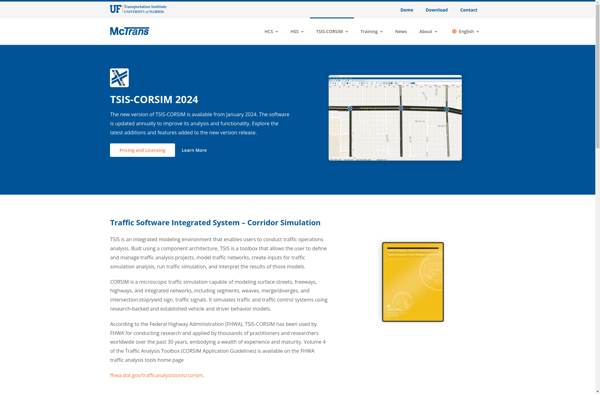
TSIS-CORSIM: Traffic Simulation Software
Traffic simulation software developed by FHWA for modeling surface transportation systems, evaluating traffic management strategies, and analyzing traffic congestion.
What is TSIS-CORSIM?
TSIS-CORSIM (Traffic Software Integrated System - Corridor Simulation) is an advanced traffic simulation software package developed by the Federal Highway Administration (FHWA) in the United States. It is used by transportation planners and engineers to model traffic operations of surface transportation systems such as freeways, highways, arterials, and urban streets.
CORSIM allows analysts to evaluate a wide range of traffic management strategies including ramp metering, variable speed limits, lane controls, and coordinated traffic signals. It can analyze their impacts on measures like throughput, density, delay, and emissions. The software can also be used to analyze traffic bottlenecks, model traffic congestion, and test solutions.
It provides realistic animation and visualization of simulated traffic allowing for detailed analysis. CORSIM combines two legacy traffic simulation programs, NETSIM for arterial network modeling and FRESIM for freeway modeling. It provides an integrated environment with an easy-to-use graphical interface and automation capabilities.
CORSIM outputs include color-coded maps and charts showing vehicle speeds, congestion levels, and other MOEs (measures of effectiveness). Its high fidelity traffic flow models allow for accurate representation of actual traffic conditions. CORSIM is commonly used for regional planning studies, traffic impact analyses, ITS evaluations, and highway/transit project environmental assessments.
TSIS-CORSIM Features
Features
- Traffic simulation and modeling
- Evaluation of traffic management strategies
- Analysis of traffic congestion
- Modeling of surface transportation systems
- Visualization of traffic patterns and flow
Pricing
- Free
Pros
Cons
Reviews & Ratings
Login to ReviewThe Best TSIS-CORSIM Alternatives
Top Business & Commerce and Transportation & Logistics and other similar apps like TSIS-CORSIM
Here are some alternatives to TSIS-CORSIM:
Suggest an alternative ❐Anylogic
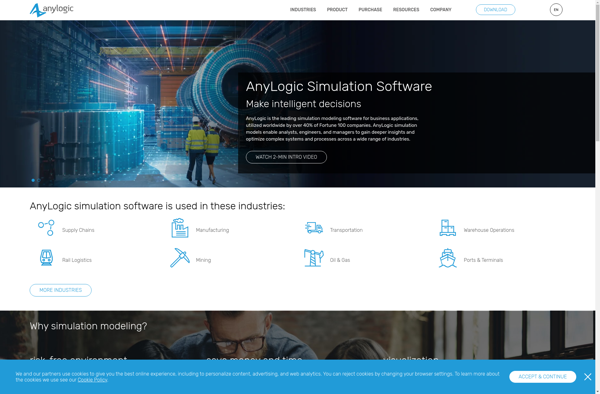
PTV Visum

MATSim
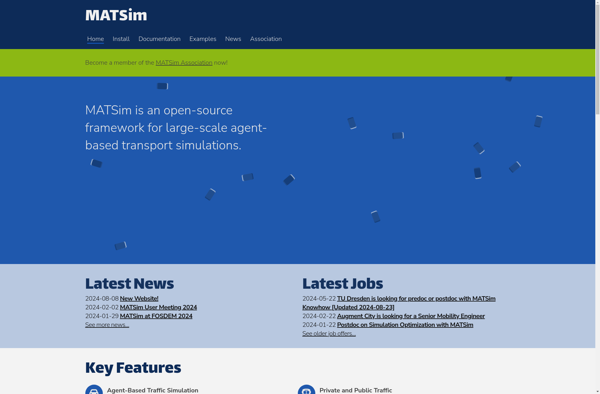
Simulation of Urban MObility (SUMO)
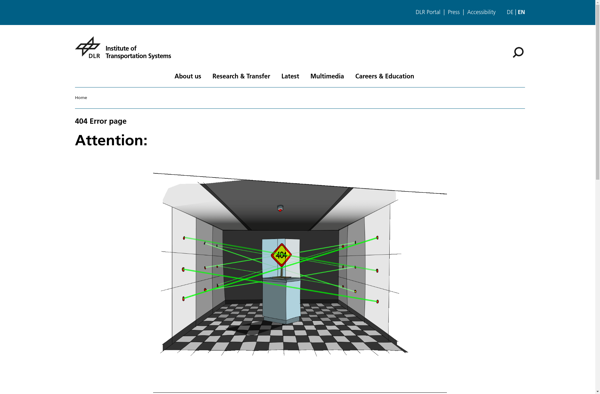
Aimsun Next
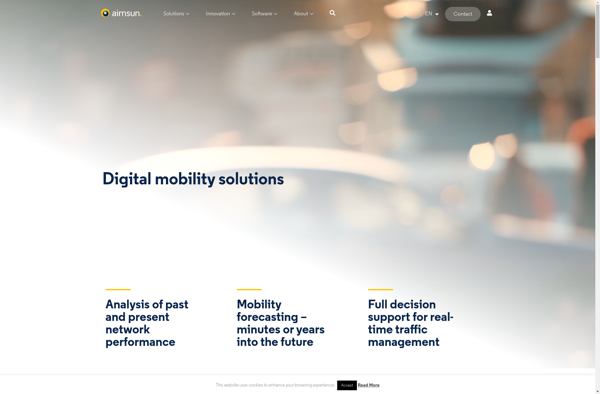
HCS
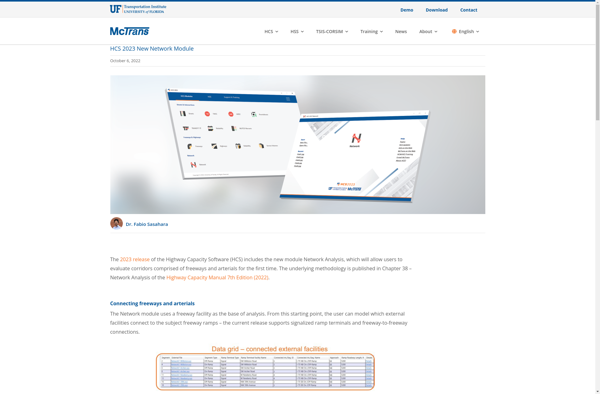
Quadstone Paramics

TRANSIMS
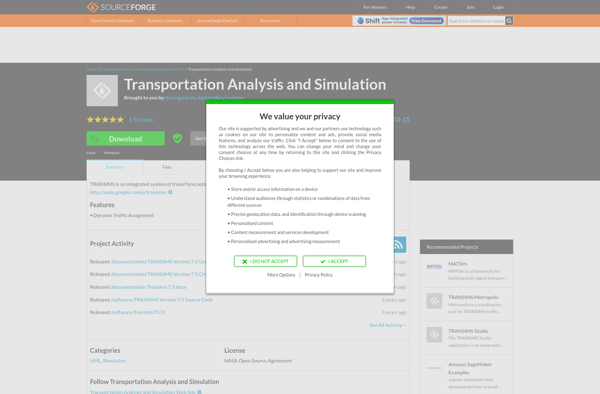
The Repast Suite
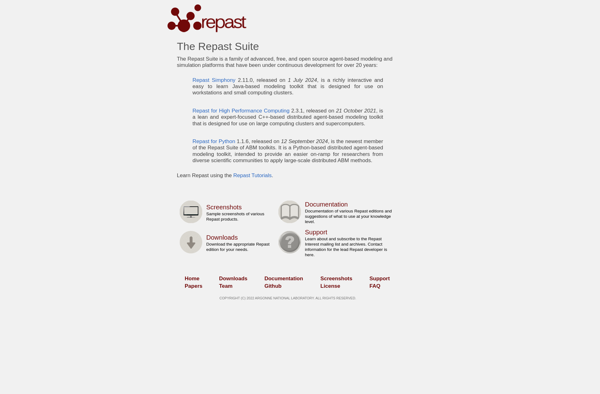
TransModeler
